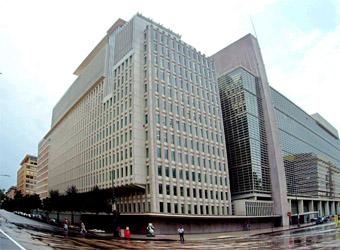The World Bank Group announced signing an agreement worth $500 million on Sunday with Egypt to develop pre-university education.
The agreement was signed on the sidelines of the World Bank Group and International Monetary Fund Spring Meetings by the Egyptian Minister of Investment and International Cooperation Sahar Nasr, and World Bank Director for Egypt, Yemen and Djibouti Asad Alam, in the presence of Minister of Education Tarek Shawki and Vice President of the World Bank for the Middle East and North Africa Hafez Ghanem.
The World Bank said that this agreement is to support Egypt’s Education Reform project, targeting to improve teaching and learning conditions in Egypt’s education system.
The five-year project will expand access to quality kindergartens for around 500,000 children, train 500,000 teachers and education officials, while providing 1.5 million students and teachers with digital learning resources, the statement said.
The bank said that the funding will support increasing access to quality kindergarten education, developing students’ examination system, improving the quality of learning and adopting technology as a vehicle for achieving reform objectives, in addition to enhancing the capacity of education staff.
“Investing in people is the key to inclusive economic growth. We welcome the World Bank’s support to the implementation of our ambitious home-grown education sector reform program,” Minister of Investment said.
Minister of Education Tarek Shawki commented by saying that Egypt’s goal is to provide students with the competencies they need to create a society that learns, thinks and innovates.
For his part, Vice President of the World Bank Hafez Ghanem said that Egypt is making a commitment to its young people and the future of the country through investing in education with a renewed focus on the nature and quality of education.
The current portfolio of the World Bank in Egypt includes 16 projects for a total commitment of $6.69 billion, according to the World Bank’s statement.
The bank finances projects in key sectors including energy, transport, water and sanitation, agriculture and irrigation, housing, social protection, as well as health and education.


